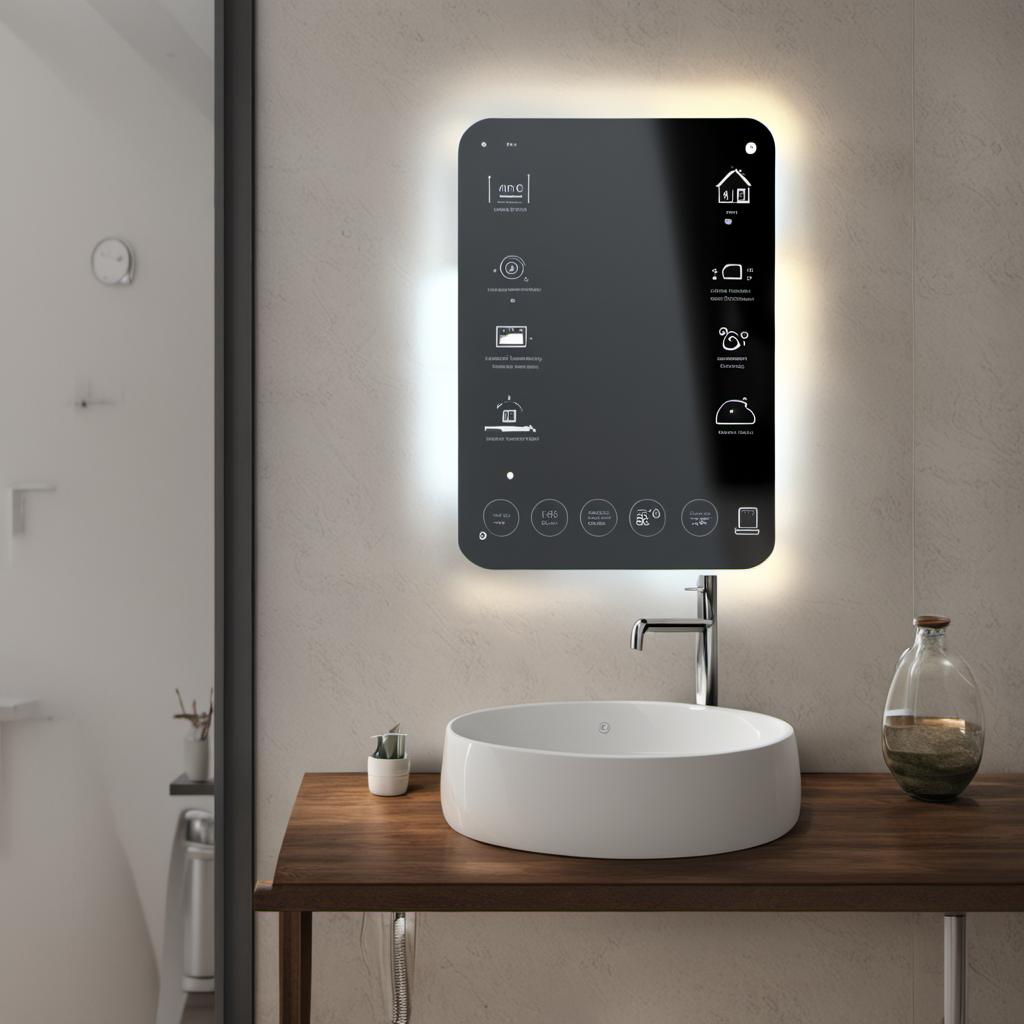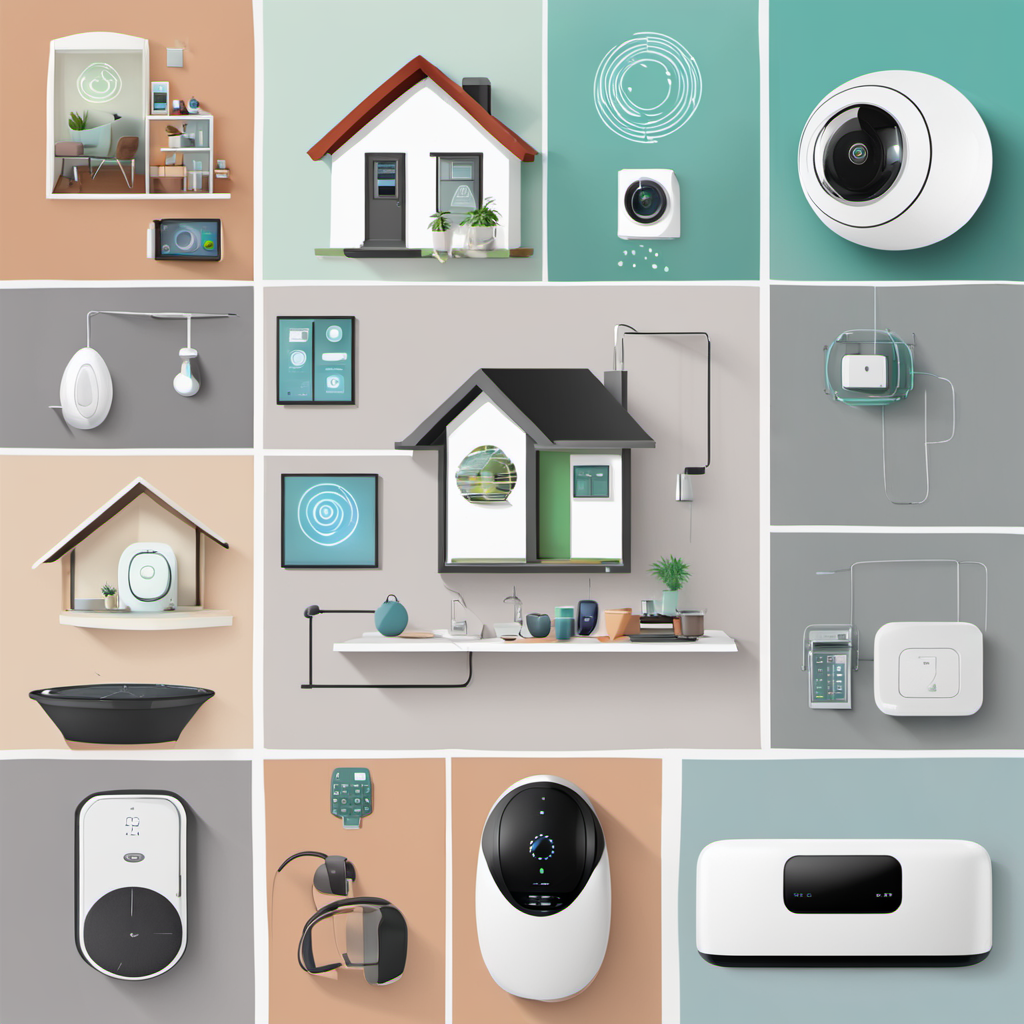Unleashing the Future: Key Benefits of Smart Home Technology

Exploring Smart Home Technology
What is Smart Home Technology?
Smart home technology refers to a collection of devices that connect to the internet and can be controlled remotely using smartphones, tablets, or voice commands. This technology transforms traditional homes into automated space, providing users with enhanced control over their surroundings. Key components of smart home systems include smart lights, thermostats, security cameras, and appliances that can be monitored and managed from anywhere.
| Device Type | Primary Function |
|---|---|
| Smart Lights | Automated lighting control |
| Smart Thermostats | Climate control based on user habits |
| Smart Security | Video monitoring and alerts |
| Smart Appliances | Control of kitchen and household tasks |
The integration of such devices provides numerous benefits, such as increased convenience and improved energy efficiency. For a deeper dive into these advantages, check out our article on smart home benefits.
How Smart Home Devices Work
Smart home devices communicate with each other and a central hub, typically using Wi-Fi, Bluetooth, or Zigbee technology. Each device has sensors and software which enable it to collect data about its functionality and the environment, allowing it to make adjustments or send notifications.
The way smart home devices operate can generally be summarised in three main steps:
- Data Collection: Devices gather information through built-in sensors.
- Communication: Data is sent to a central hub or directly to the user’s device.
- Action/Automation: Based on the received data, users can automate tasks or adjust settings through a mobile app or voice commands.
| Communication Method | Key Features |
|---|---|
| Wi-Fi | High-speed connection, wider range |
| Bluetooth | Short-range, energy-efficient |
| Zigbee | Low-power, mesh network capabilities |
The seamless interaction among devices ensures a user-friendly experience while enhancing security and energy efficiency. Understanding the inner workings of smart home technology can help beginners appreciate the benefits of home automation and the smart home technology advantages that come with it. Additionally, for a simplified overview of what makes a smart home, visit our article on smart home features explained.

Benefits for Everyday Living
Smart home technology offers a range of advantages that can significantly enhance daily life. With advancements in automation and energy efficiency, he or she can enjoy a more convenient and cost-effective lifestyle.
Convenience and Automation
One of the key benefits of smart home technology is the convenience it provides. It allows users to automate routine tasks, making it easier to manage their home environment. From controlling lighting and temperature to managing appliances, automation saves time and effort.
| Task | Traditional Method | Smart Home Automation |
|---|---|---|
| Adjusting Thermostat | Manually changing settings | Mobile app control |
| Turning Off Lights | Walking to each switch | Voice command or app |
| Setting Alarm | Changing settings daily | Scheduled automation |
With smart home systems, it is possible to schedule lights to turn on and off, set the thermostat to adjust automatically based on the time of day, and even receive notifications when home appliances are in use. For more information on how these systems can enhance everyday life, check out the benefits of home automation.
Energy Efficiency and Cost Savings
Another significant advantage is energy efficiency, which leads to cost savings over time. Smart home technology can optimise energy use by automatically adjusting heating and cooling systems based on occupancy and preferences. This not only reduces energy waste but also lowers utility bills.
| Appliance | Traditional Usage (kWh) | Smart Home Usage (kWh) | Estimated Monthly Savings (£) |
|---|---|---|---|
| Thermostat | 150 | 100 | 15 |
| Smart Lighting | 80 | 40 | 10 |
| Appliances (smart plugs) | 200 | 120 | 20 |
By implementing smart energy management systems, homeowners can monitor energy consumption and gain insights into their usage patterns. This data helps make informed decisions to save even more. For a deeper look at the benefits, visit our article on smart home technology advantages.
Embracing smart home technology not only makes life easier but also contributes to a more sustainable living environment. By leveraging the advantages of these advancements, users can experience the true benefits of a smart home.
Enhancing Home Security
Smart home technology significantly enhances the security of a residence, providing peace of mind to homeowners. Two key areas within this realm include remote monitoring and control, as well as integration with existing home security systems.
Remote Monitoring and Control
One of the primary advantages of smart home technology is the ability to monitor and control your home from virtually anywhere. This feature is invaluable for homeowners looking to keep an eye on their property. With smart security cameras and motion sensors, individuals can receive real-time alerts on their smartphones. They can view live footage, check in on their home, and even communicate with visitors at the door, all while away.
Remote monitoring statistics illustrate the effectiveness of these features:
| Feature | Percentage of Users Who Feel Safer |
|---|---|
| Smart Cameras | 78% |
| Smart Doorbells | 73% |
| Motion Sensors | 65% |
Integration with Home Security Systems
Another significant benefit of smart home technology is the ability to integrate with existing home security systems. Many homeowners have traditional security systems in place, but smart technology can enhance these setups. For instance, smart locks, alarms, or sensors can work alongside conventional systems, creating a comprehensive security network.
This integration provides seamless control over security settings. Homeowners can easily manage their system through apps, set schedules for when security measures should be active, and receive alerts when something unusual is detected. This level of control brings added security and convenience to daily life.
For a deeper understanding of these features, check out our articles on smart home benefits and benefits of home automation. Exploring these topics will reveal more about how smart home technology can bolster personal safety and enhance home management.
Improved Quality of Life
Smart home technology not only enhances convenience but also significantly improves the quality of life for its users. This section focuses on two key areas: health and wellness features, and entertainment and connectivity benefits.
Health and Wellness Features
Smart home devices can play a vital role in promoting health and well-being. Many of these systems offer various features designed to support a healthier lifestyle. For instance, smart thermostats can create a comfortable living environment by automatically adjusting temperature settings. Smart lighting can help regulate circadian rhythms by mimicking natural daylight patterns.
Moreover, health-focused devices, such as smart air purifiers and smart scales, provide real-time feedback about the living conditions and personal health metrics. Many of these gadgets can also connect to health apps, giving users valuable insights into their wellness journey.
Here is a summary of some health and wellness features:
| Smart Device | Health Benefit |
|---|---|
| Smart Thermostat | Maintains optimal home temperature, enhancing comfort |
| Smart Air Purifier | Removes allergens, improving air quality |
| Smart Scale | Tracks weight and body composition for health monitoring |
| Smart Lighting | Adjusts light patterns to support better sleep quality |
Entertainment and Connectivity Benefits
Smart home technology adds a whole new layer of entertainment and connectivity options, making leisure time more enjoyable and convenient. Devices such as smart speakers and smart TVs allow users to stream content, control music, and manage entertainment systems with voice commands or through a mobile app.
In addition, smart home systems enable seamless integration between various devices and services, allowing users to connect with friends and family more readily. For example, video doorbells and smart cameras enable users to interact with visitors remotely, enhancing social connectivity even when away from home.
The table below highlights some of the entertainment and connectivity benefits:
| Feature | Benefit |
|---|---|
| Smart Speakers | Stream music and control home entertainment with voice commands |
| Smart TVs | Access online streaming services and control TV settings remotely |
| Smart Cameras | Monitor home surroundings and interact with guests via mobile devices |
| Video Doorbells | See and communicate with visitors from anywhere in the house |
The advantages of smart home technology are not limited to convenience; they also extend into the realms of health, wellness, entertainment, and connectivity. For more insights on the various benefits of smart home systems, check out our articles on smart home benefits and smart home technology advantages.